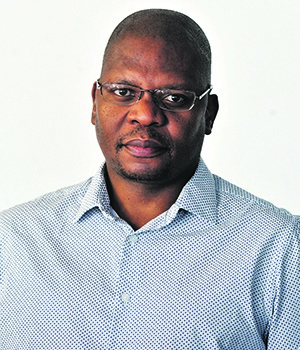
Some years ago, I came close to blows with the irrational face of religious extremism.
It was during the time of the Prophet Muhammad cartoons, when violent protests were sweeping across the Arab world and western Europe. Mobs were rampaging across those countries and destroying at will as they protested against the publication of the cartoons, which they deemed sacrilegious.
Feeling left out, some local hotheads tried to find a way of getting in on the action.
The easiest way to do so was to bait, threaten and intimidate local newspapers on the mere suspicion that we might be considering publishing the cartoons here.
Without going into too much detail, suffice to say there were bomb threats, guns pulled and the violent intimidation of street sellers and traders stocking certain newspapers in some neighbourhoods.
It was ugly – and could have got much, much uglier were it not for some admirable intervention by societal elders.
Which brings me to the time I came up close and personal with the rational face of mainstream South Africa.
As temperatures rose among the extremists here who were suffering from Fomo (fear of missing out), a group of Muslim leaders stepped forward to douse the fires. They included clerics, businessmen and community leaders.
I remember them saying that, as much as they abhorred the cartoons, they would not allow the importation into South Africa of the extremism that one found in some parts of the world.
They explained that South Africa’s Muslims enjoyed some of the best – if not the best – levels of freedom and tolerance in the world.
Whereas in the West they were “the other” and treated with suspicion, in South Africa they were part of the mainstream and were not subjected to profiling.
And, unlike in many Muslim countries, in South Africa there was little tension between the different strands of the faith, so worship was less divisive here.
Relations with other religions were also much more constructive and cooperative. Leaders participated in joint structures and often publicly stood together on social issues.
Politically, South Africa’s Muslim community fell in the centre. This was highlighted by their scoring invitations to participate as equals with all the country’s other faiths in the opening prayers of state functions and the conferences of the majority party.
This good standing, they argued, could not be imperilled by a few crazy individuals. Their intervention worked wonders and peace was restored.
This attitude is key to having ensured that South Africa does not become fertile ground for the recruitment of fighters of extremist causes elsewhere.
The incidents where South Africans have been reported to be in Islamic State camps – or headed for such camps – have been few and far between.
Attempts to set up cells and bases in this country have been easily thwarted by the security forces and reported on by the media.
There are, of course, other policy decisions that kept us safe – such as South Africa’s staunch pro-Palestinian stance, our refusal to get involved in Western-led military ventures and our strong leadership role in the nonaligned movement.
South Africa’s indignant reaction to the US and British terror alerts a few weeks ago, should be understood in this context. The manner in which the two powers told the world that South Africa was a terror target was enough to get anyone’s back up.
While government responded with a middle-finger statement and a démarche, some South Africans were downright abusive, responding with sick comments on the horrific nightclub terrorist attack in Orlando, Florida. They gleefully told the US to mind its own back yard instead of telling secure South Africa about the threats it faces.
South Africa has done a lot of work to ensure that the country is immunised against terrorism. This immunisation may not be 100% effective, but to willy-nilly lump our country with terrorism against vulnerable nations – based on stringy intelligence – smacked of sinister motives.
In case this lowly journalist is sounding like the ubiquitous Intelligence Minister David Mahlobo, or the forever phantom-chasing Gwede Mantashe, it is because South Africa’s government was correct to feel insulted by the terrorism alert.
Some experts called the reaction over-the-top, but it was absolutely correct to place on record that South Africa is one of the world’s most low-risk countries when it comes to the scourge of terrorism.
Our risk lies elsewhere – in issues such as political instability, state capture, violent reaction to government failures, systemic corruption, a tottering education system, and the worrying intersect between politics and organised crime.
This is not to say that it will always be this way. But for now, it is safe to say that we can shop at leisure if the wallet allows.




 Publications
Publications
 Partners
Partners








